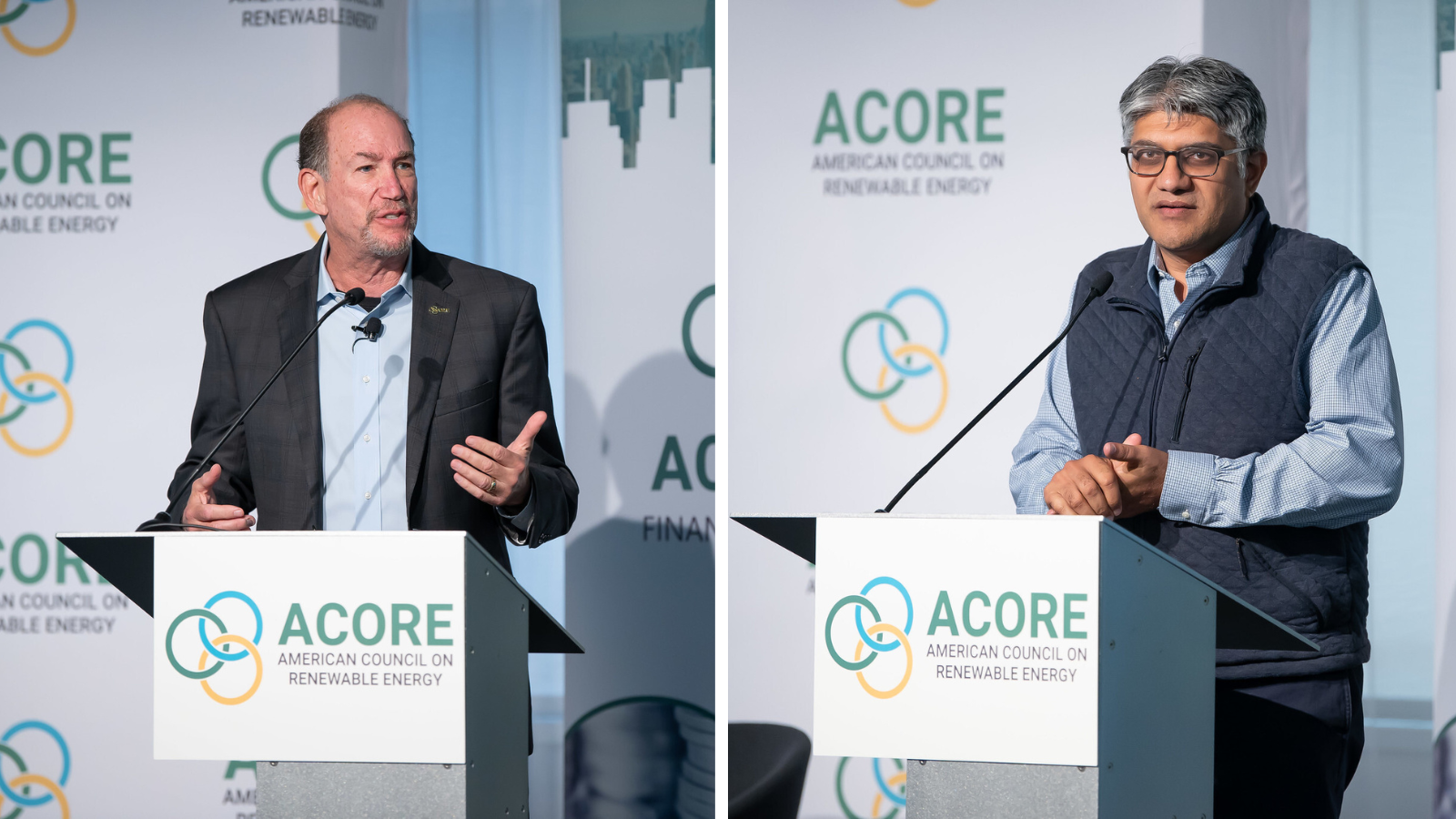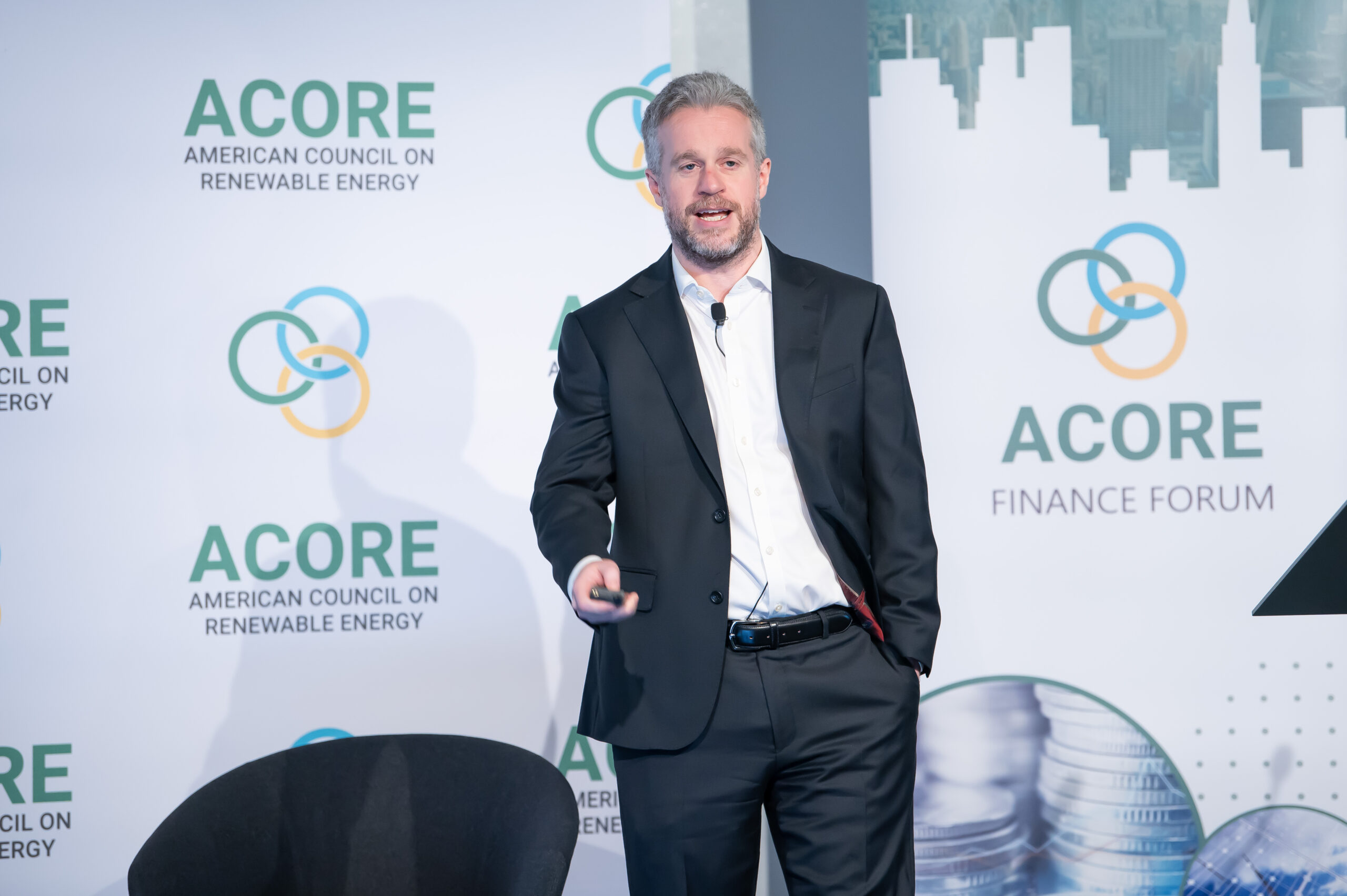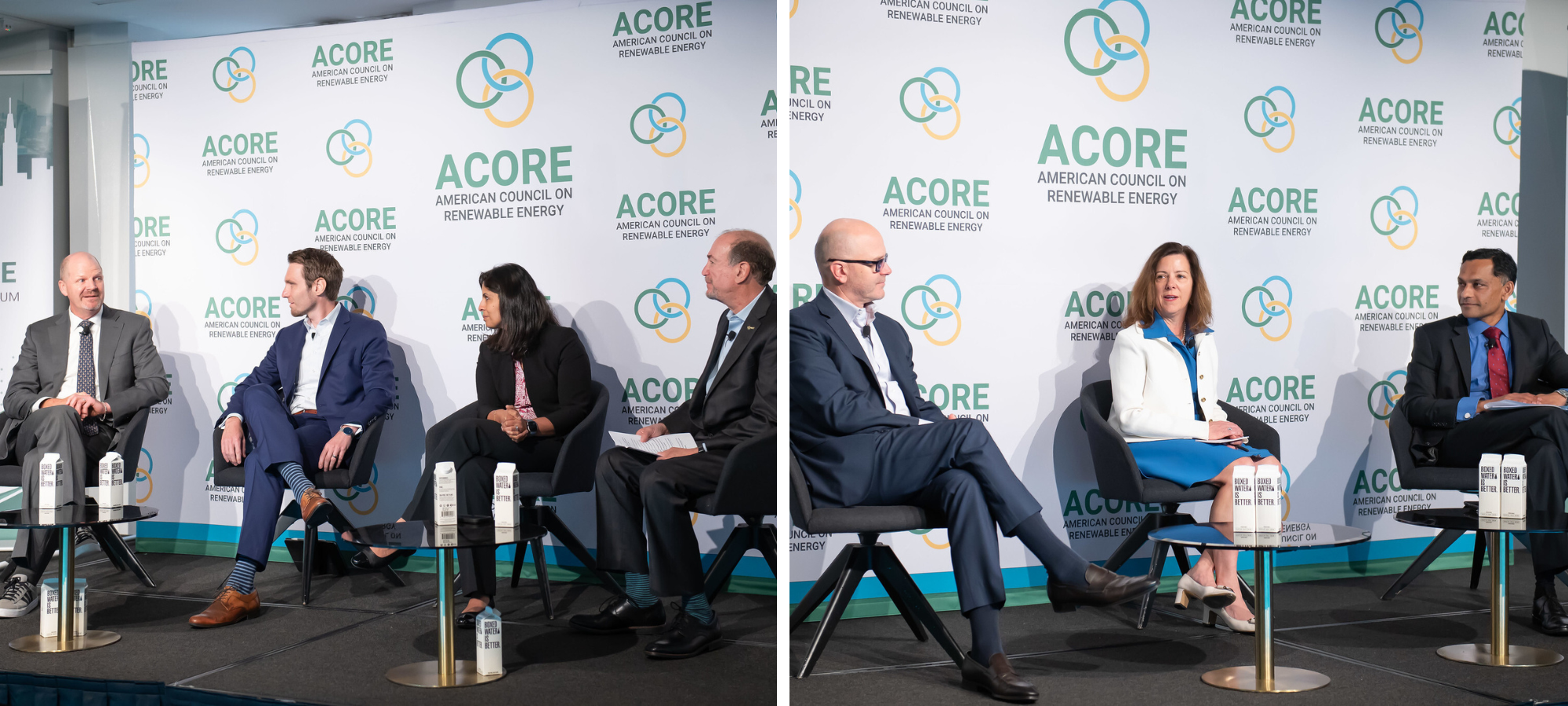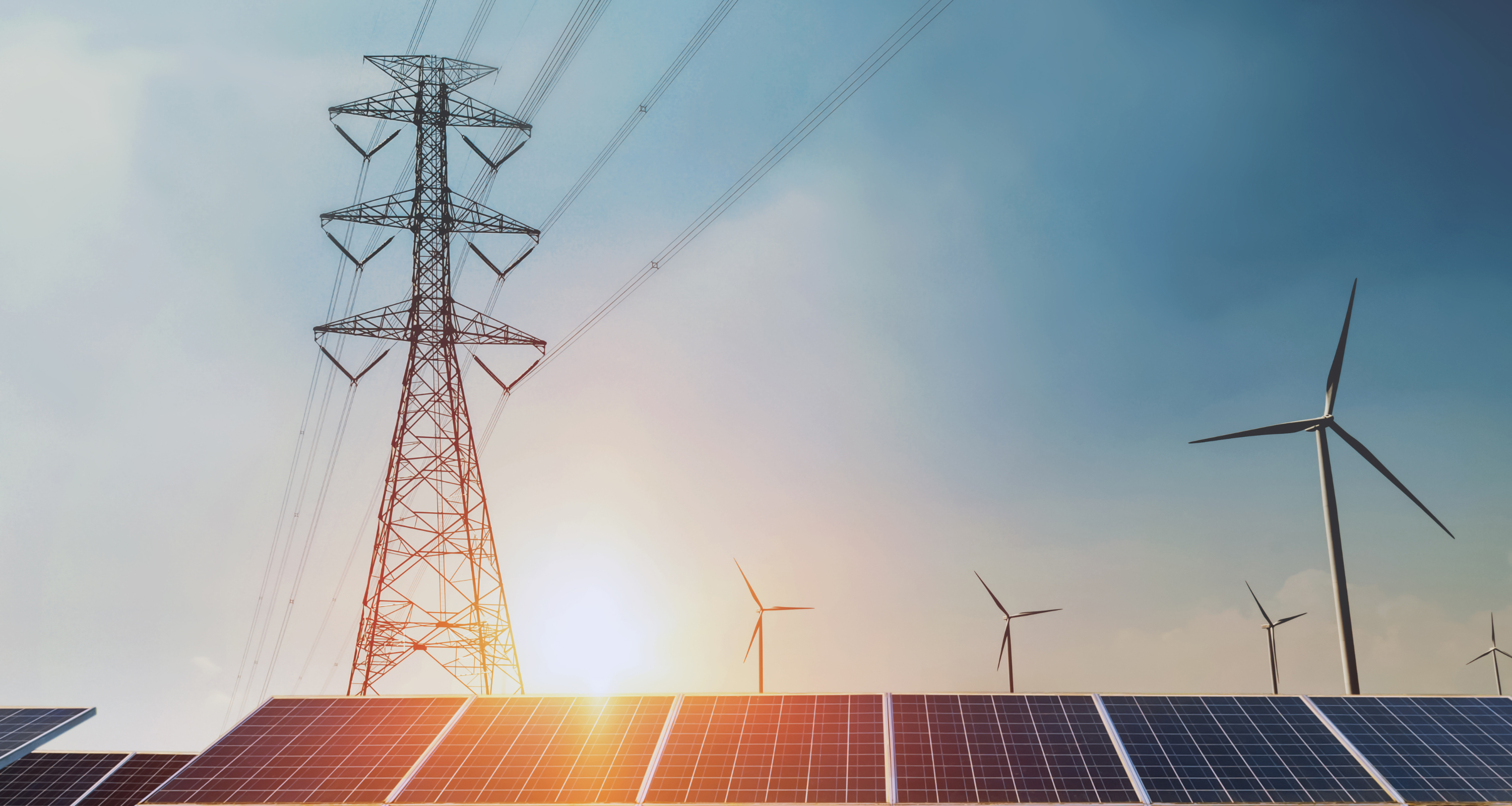Unprecedented Opportunity for Renewable Investment on Display at 2023 ACORE Finance Forum
On June 7 and 8, the American Council on Renewable Energy (ACORE) hosted its 2023 Finance Forum amidst smoky skies and record pollution levels that blanketed New York and provided an urgent reminder that investing in clean energy is more important than ever.
ACORE President and CEO Gregory Wetstone welcomed attendees and opened the conference with his presentation on the current State of Play for renewable energy on the heels of Inflation Reduction Act (IRA) enactment last August. Following an overview of key drivers and headwinds impacting renewable growth, Wetstone discussed the findings of ACORE’s new analysis, Expectations for Renewable Energy Finance in 2023-2026. One highlight was that, for the first time in this report’s six-year history, surveyed investors unanimously expected the U.S. to increase in attractiveness for renewable energy investment compared to other countries over the coming three years. Keynote speaker and Director of the Department of Energy’s Loan Programs Office, Jigar Shah, remarked that most of the challenges facing the renewable sector today are now non-economic issues.

Confronting Great Challenges to Ensure Greater Success
Reflecting on a year of transformational development, renewable sector leaders and project investors speaking at the ACORE Finance Forum reached a common conclusion: the industry has never had more momentum, nor more tools at its disposal. The IRA, paired with continued technological advancements and a push from corporate leaders and shareholders to lower greenhouse gas emissions, has created customer-driven momentum toward increased clean energy investment.

Panelists agreed that the IRA will help unleash the power of private capital in new ways, even as they acknowledged that deployment over the near term remains limited by headwinds such as grid constraints, workforce limitations, supply chain issues, and permitting delays. Tom Rowlands-Rees (BloombergNEF) concluded that the economic outlook for renewables remains promising; even as we continue to face inflation, commodity prices receding to pre-pandemic levels and persistent fossil fuel price volatility. Rowlands-Rees also expanded on Shah’s point that non-economic barriers are more likely to impede the full potential of renewable energy technologies in this decade.

Top executives on the first two panels, Macro Trends for Growth Through the Headwinds and Views from the C-Suite, underscored the importance of additional policy mechanisms to maximize the benefits of the IRA, highlighting long overdue reforms to transmission planning, siting, permitting, cost allocation, and interconnection processes. In the months ahead, speakers agreed the industry will need creative and collaborative thinking to cement renewable energy “as the most prominent and investable space in infrastructure.”
Forging the Path Ahead for Project Finance
The emergence of transferability and direct pay has prompted industry stakeholders within and outside the finance community to contemplate a new landscape for project finance. Panelists with wide-ranging expertise agreed that “transferability and tax equity can work in symbiosis,” and reinforced the unique advantage of traditional tax equity for monetizing depreciation.
Yet speakers throughout the conference also acknowledged the limited supply of tax equity, which continues to hover at around $20 billion per year. As survey respondents commented in the new Expectations for Renewable Energy Finance report, post-IRA demand for tax equity will likely exceed that volume by two or three times. There was wide consensus at the event on the need for non-traditional investors – like corporate buyers and investors with sustainability goals – to engage in transferability and direct pay. A critical part of incentivizing these companies to enter the sector is extending some form of environmental, social and governance (ESG) credit or other environmental recognition to parties engaged in the transfer and sale of renewable energy tax credits. Experts also discussed education, policy changes, and the use of innovative structures as means to help insurance companies, bond holders, and corporate procurers become tax equity providers or credits transferee, especially as banks may be hit with new regulatory limitations.
Finance Forum speakers suggested that transferability could help speed the dealmaking process, while absorbing unfilled demand for tax equity – an especially important approach as new bonus credits, asset classes, and monetization options add complexity to renewable energy transactions. Many highlighted transferability as a key priority for forthcoming Treasury guidance. (ACORE was pleased to see Treasury release such guidance the week following the conference, on June 14, along with guidance for direct pay).

Prioritizing Climate Solutions and Equitable Outcomes
Corporate demand for renewable energy reached a record 19.9 gigawatts in 2022, and panelists from major renewable energy offtakers reaffirmed their intent to expand their purchasing in 2023 and beyond. Speakers commented that the IRA has bolstered companies’ appetites to buy renewable energy, and enhanced corporate sustainability and climate ambitions.
The panel, Centering Equitable Investing Strategies, focused on the new incentives in the IRA that seek to direct clean energy investment to historically disadvantaged communities. The crucial challenge identified by panelists was how best to ensure that the benefits created by such projects are equitably shared. Speakers noted that intentionality throughout project planning and oversight will be necessary to achieve a just transition.
Despite the recent political attacks on ESG investing, panelists in A Critical Time for Sustainable Investment remarked on the persistence of a strong desire for both internal and external sustainability strategies across different sectors of the economy. Panelists highlighted the need for increased transparency in corporate climate disclosures to help direct more ESG investment to the renewable energy sector.

Financing the Domestic Industry of Tomorrow
The final two panels of this year’s ACORE Finance Forum discussed efforts to achieve a more robust domestic supply chain and expand financing pathways for emerging technologies.
Panelists observed that a greater appreciation for energy security has made U.S. products worth the premium as domestic manufacturers become increasingly competitive, especially in the wake of Russia’s assault on Ukraine and delayed shipments during the pandemic. Onshoring the supply chain is however a process that, they noted, will take time. To move that process along, panelists called for trade policies that balance supply chain integrity with access to raw materials from diverse sources, expressing their hope that future Treasury guidance on domestic content and other policy support will resolve key issues around manufacturers’ true costs, which could make or break the pathway to compliance.
Panelists credited IRA tax incentives for rapidly elevating emerging technologies, such as clean hydrogen and long-duration storage, from “projects worth exploring” to investable opportunities capable of reaching commercial scale in the next three years or less. Cementing newer deployment pathways, they noted, will require early project validation and creative financing to minimize the inherent risk of emerging technologies, while absorbing some of that risk to attract corporate buyers whose investment can increase over time. “If you build it, they will come,” expressed one panelist. Another panelist suggested that financiers need not start from scratch, as examples of innovative structures can be found in the market today. In the age of IRA, they agreed, predictable revenues and long-term cash flows for emerging technologies are already beginning to take shape.

The entire ACORE team would like to thank all who were able to join us at this year’s Finance Forum, with a special thanks to the sponsors who made our New York events possible. A gallery of photos from the conference can be viewed here. Next up, ACORE looks forward to hosting our annual Grid Forum on October 11, 2023 in Arlington, Virginia. We hope you’ll join us there. You can register for that event here.
Join leaders from across the clean energy sector.

What will our next 20 years look like? Here’s the truth: they’ll be better with ACORE at the forefront of energy policy.
Shannon Kellogg
Amazon Web Services (AWS)
